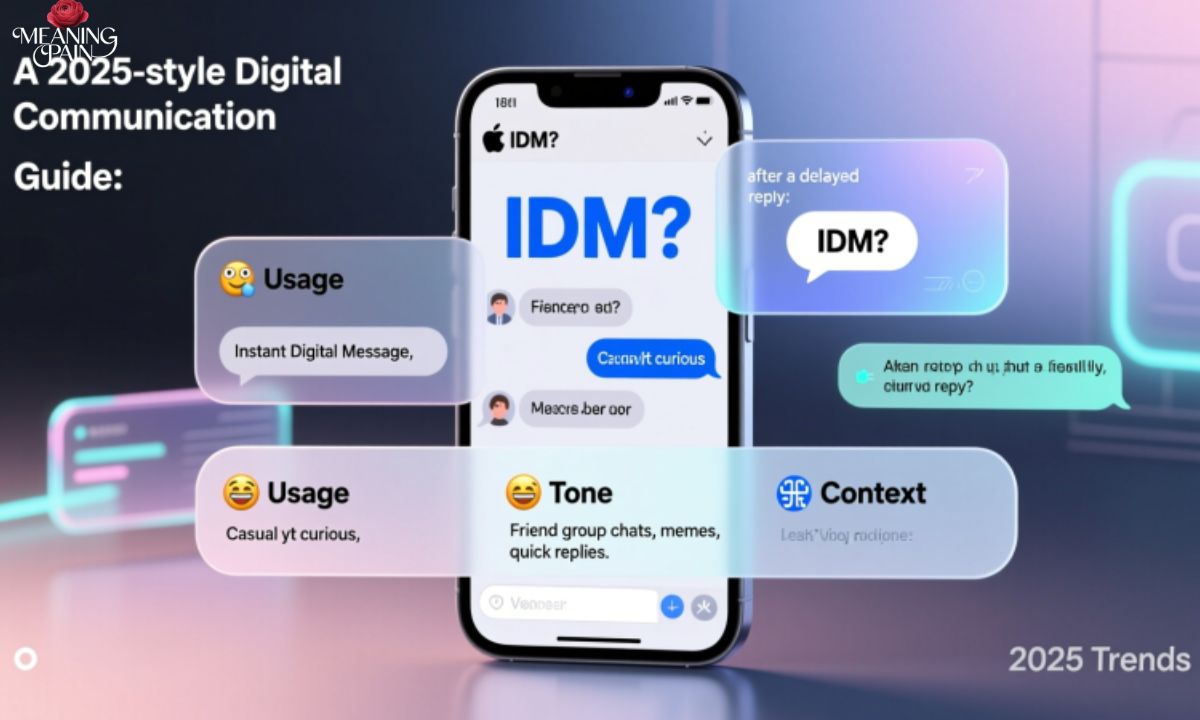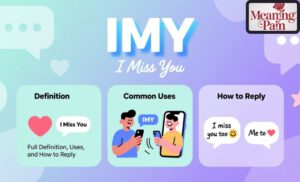If you’ve been scrolling through text messages or social media lately, you’ve probably stumbled across “IDM” and wondered what it actually means. This casual internet slang stands for “I don’t mind,” and it’s become a go-to phrase for keeping conversations light and breezy. Whether someone’s asking about dinner plans or suggesting a movie choice, IDM is the digital equivalent of a relaxed shrug.
The beauty of IDM lies in its simplicity and flexibility. It shows you’re easygoing without typing out a lengthy response, which fits perfectly into our fast-paced texting culture. Understanding when and how to use IDM can help you sound more natural in casual chats, avoid miscommunication, and keep up with evolving digital language trends that shape how we connect online.
What Does IDM Mean in Text?
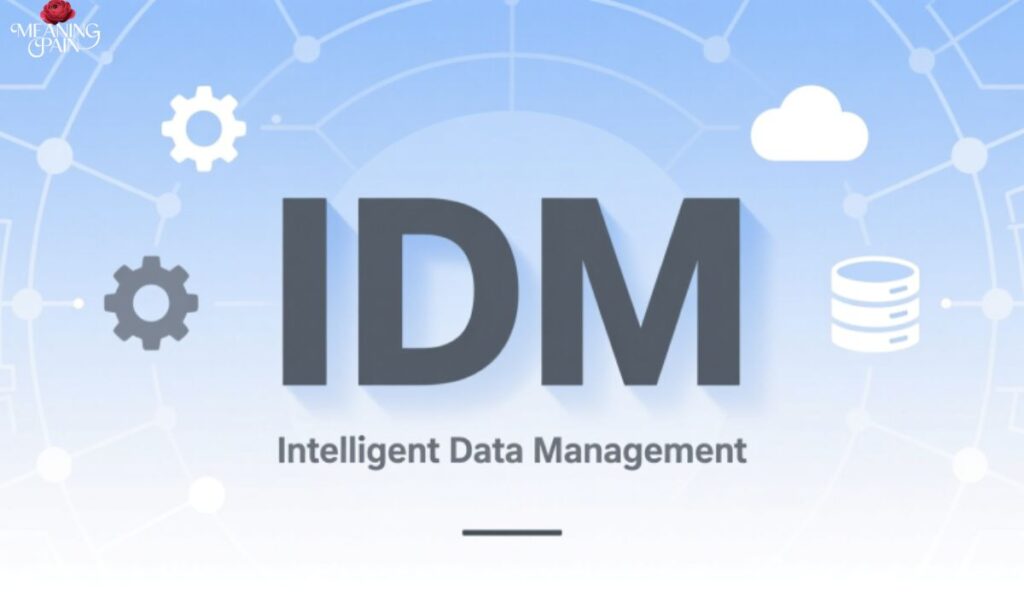
- IDM – Acronym standing for “I Don’t Mind”
- Text – Digital written communication between people
- Slang – Informal language used in casual conversation
- Acronym – Shortened form using first letters of words
- Messaging – Sending written communications electronically
- Casual – Relaxed, informal style of communication
- Response – Reply given to a question or statement
- Agreement – Showing acceptance or approval of something
- Flexibility – Being open to different options or choices
- Abbreviation – Shortened version of longer phrases
IDM Meaning Explained Simply
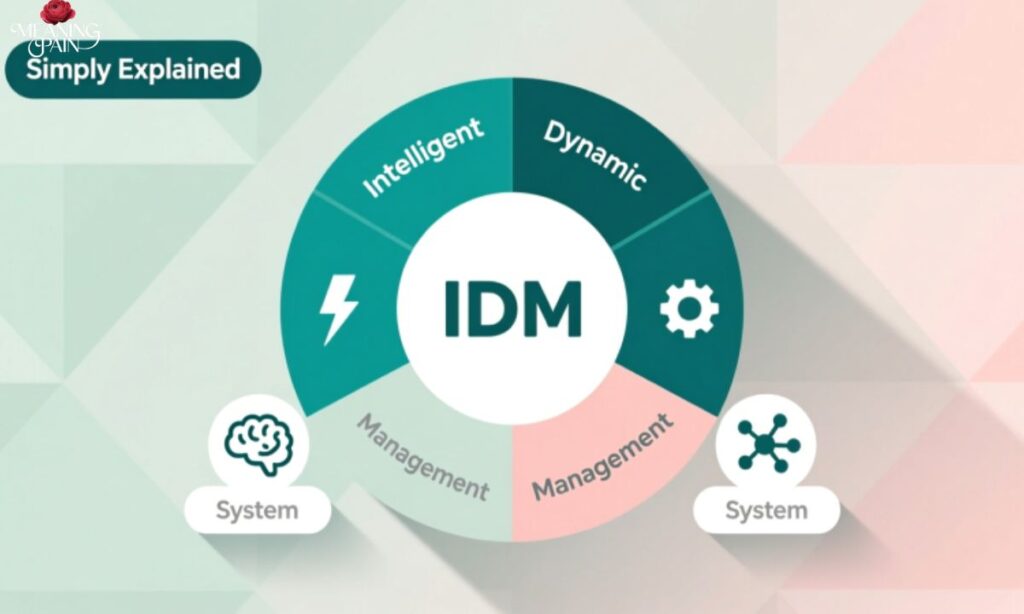
- Consent – Giving permission or agreeing to something
- Neutral – Not strongly for or against something
- Permission – Allowing something to happen or proceed
- Acceptance – Willingly receiving or agreeing to something
- Indifference – Not having strong feelings either way
- Approval – Showing you’re okay with a suggestion
- Easygoing – Relaxed attitude about decisions or plans
- Phrase – Group of words expressing complete thought
- Context – Surrounding situation that gives meaning
- Informal – Casual, not following strict rules
Read More: https://meaningpain.com/amina-meaning-in-arabic/
Common Ways People Use “IDM” in Texting
- Plans – Arrangements made for future activities
- Decisions – Choices made between different options
- Suggestions – Ideas proposed by someone else
- Options – Different possibilities to choose from
- Preferences – Things someone likes or favors
- Scheduling – Arranging times for events or meetings
- Conversation – Back-and-forth exchange of messages
- Friend – Person you have casual relationship with
- Coworker – Person you work with professionally
- Family – Relatives you communicate with regularly
When You Should Use or Avoid “IDM”
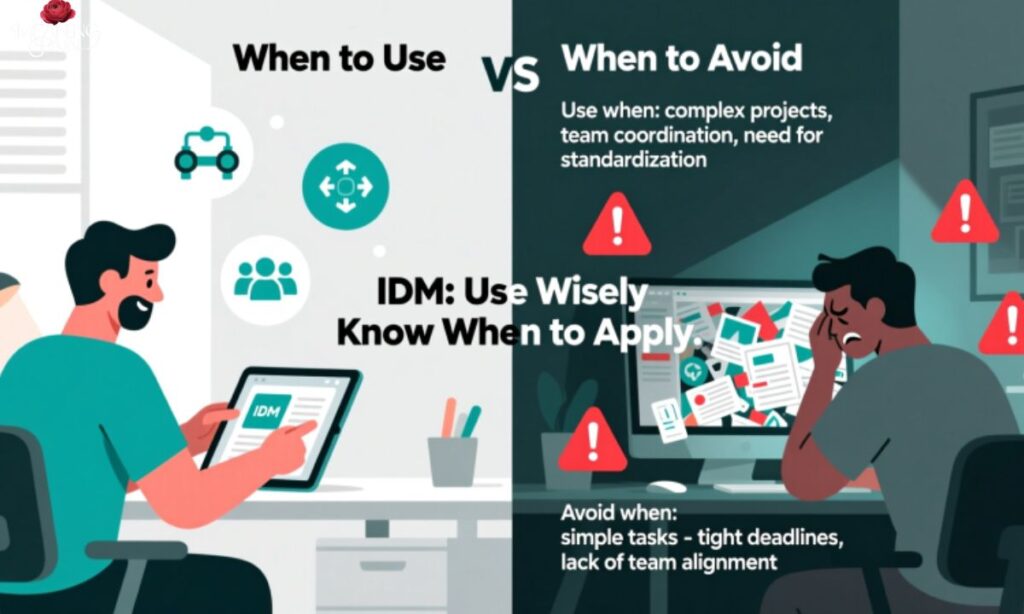
- Appropriate – Suitable for the specific situation
- Professional – Related to work or formal settings
- Formal – Following proper rules and etiquette
- Boss – Person in authority at workplace
- Interview – Formal meeting for job opportunity
- Client – Business customer or professional contact
- Etiquette – Proper manners in communication
- Tone – Attitude or feeling conveyed in message
- Relationship – Connection between people communicating
- Setting – Environment where communication happens
- Respect – Showing consideration for others
- Boundaries – Limits of appropriate behavior
- Misunderstanding – Confusion about message meaning
- Clarity – Being clear and easily understood
- Alternative – Different option or way to express
- Communication – Exchange of information between people
- Digital – Electronic format of conversation
- Platform – App or service used for messaging
- Recipient – Person receiving your message
- Expression – Way of showing thoughts or feelings
Situations Where “IDM” Sounds Natural
- Casual – Relaxed, informal social interaction style
- Friends – Close companions in everyday conversations
- Comfortable – Feeling at ease in communication
- Relaxed – Low-pressure, easygoing social situation
- Flexible – Open to various options without preference
- Group – Multiple people making decisions together
- Chat – Informal back-and-forth text conversation
- Hangout – Casual social gathering or meeting
- Restaurant – Place where dining choices are discussed
- Movie – Entertainment option requiring group agreement
When “IDM” Might Sound Rude or Cold

- Dismissive – Seeming uninterested or uncaring about topic
- Important – Significant matter requiring serious attention
- Emotional – Situation involving feelings or sensitivity
- Upset – Someone feeling hurt or disappointed
- Care – Showing genuine interest and concern
- Enthusiasm – Excitement or positive energy lacking
- Investment – Showing personal interest in outcome
- Distant – Creating emotional space or disconnection
- Apathetic – Appearing not to care at all
- Insensitive – Lacking awareness of others’ feelings
Understanding the Tone Behind “IDM”
- Tone – Emotional quality conveyed through words
- Interpretation – How message is understood by receiver
- Context – Surrounding circumstances affecting meaning
- Relationship – Connection level between communicators
- History – Past interactions influencing current perception
- Mood – Emotional state of person sending message
- Punctuation – Marks affecting message tone interpretation
- Emoji – Small icons adding emotional context
- Exclamation – Mark showing excitement or energy
- Period – Punctuation potentially making message seem blunt
Is “IDM” Friendly or Indifferent?
- Ambiguous – Unclear or having multiple possible meanings
- Perception – How receiver views sender’s attitude
- Genuine – Truly authentic feeling or intention
- Polite – Showing good manners and consideration
- Accommodating – Willingly adjusting to others’ preferences
- Passive – Not showing active interest or involvement
- Enthusiasm – High level of excitement or interest
- Neutral – Neither positive nor negative in feeling
- Engagement – Level of active participation shown
- Warmth – Friendly, caring quality in communication
- Recipient – Person receiving and interpreting message
- Intention – What sender actually means to convey
- Clarify – Making meaning clearer to avoid confusion
- Follow-up – Additional message explaining original intent
- Elaborate – Providing more details or explanation
- Balance – Finding right amount of interest shown
- Nuance – Subtle difference in meaning or tone
- Signal – Indicator of true feelings or attitude
- Expectation – What receiver anticipates from sender
- Misinterpret – Understanding message incorrectly or wrongly
Better Alternatives to “IDM” in Texts
- Alternatives – Different options that convey similar meaning
- Express – Communicate feelings or thoughts clearly
- Warmth – Friendly, caring quality in messages
- Clarity – Being clear and easily understood
- Specific – Giving exact details rather than vague
- Elaborate – Providing more information or explanation
- Preference – Personal choice or favorite option
- Engaged – Actively interested and participating fully
- Thoughtful – Showing careful consideration and care
- Replace – Substitute with better wording choice
Polite and Professional Replacements for “IDM”
- Professional – Appropriate for work or formal settings
- Formal – Following proper business communication rules
- Respectful – Showing consideration and good manners
- Courteous – Polite and well-mannered in tone
- Workplace – Office or professional environment setting
- Colleague – Person you work with professionally
- Superior – Person in higher authority position
- Meeting – Formal gathering requiring proper language
- Email – Professional written communication method
- Diplomatic – Tactful and appropriate for business
Casual and Friendly Phrases Instead of “IDM”
- Friendly – Warm and approachable communication style
- Upbeat – Positive and energetic tone quality
- Enthusiastic – Showing excitement and genuine interest
- Positive – Optimistic and cheerful message quality
- Energy – Lively spirit conveyed through words
- Welcoming – Making others feel comfortable included
- Cheerful – Happy and pleasant in expression
- Supportive – Showing backing and encouragement given
- Interactive – Encouraging two-way conversation flow
- Personalized – Tailored specifically to individual situation
Using “IDM” Correctly
- Audience – Person or people receiving your message
- Situation – Specific circumstances of the conversation
- Awareness – Understanding how message will be received
- Adapt – Adjust communication style to fit context
- Communication – Exchange of clear information effectively
- Effective – Successfully achieving intended message goal
- Relationship – Bond between people communicating together
- Balance – Right mix of casual and clear
- Judgment – Ability to assess appropriate language use
- Mindful – Conscious and aware of message impact
- Impact – Effect your words have on receiver
- Intention – Purpose behind your message choice
- Receiver – Person who gets and reads message
- Misunderstanding – Confusion caused by unclear communication
- Guidelines – Rules or suggestions for proper use
- Context – Overall situation affecting message appropriateness
- Versatile – Adaptable to different situations effectively
- Appropriate – Suitable and fitting for specific occasion
- Practice – Repeated use to improve communication skills
- Improve – Making your texting communication better overall
Frequently Asked Questions
What Muslim names are used in the USA?
Muslim names commonly used in the USA include Adam, Omar, Malik, Sara, Layla, and Zara for their easy pronunciation. These names honor Islamic tradition while fitting naturally into American society and professional settings.
What are Americanized Arabic names?
Americanized Arabic names like Maya, Leila, Aria, Noah, and Sophia blend seamlessly into Western culture while maintaining Islamic roots. These names are popular among American Muslim families seeking balance between heritage and integration.
What are westernized Muslim names?
Westernized Muslim names include Iman, Amara, Sami, Rami, and Lina that sound familiar to Western ears. These names preserve their Islamic meanings while being easy to pronounce for non-Muslim Americans in schools and workplaces.
What is a popular Muslim name?
Muhammad remains the most popular Muslim boy name worldwide, meaning “the praised one” after the Prophet. For girls, Aisha is extremely popular, meaning “living” and honoring the Prophet’s beloved wife.
Who is the richest Muslim in the USA?
Shahid Khan, owner of the Jacksonville Jaguars and Fulham FC, is among the wealthiest Muslims in America with billions in net worth. His success story represents the achievements of Muslim Americans in business and entrepreneurship.
What is the most common Muslim full name?
Muhammad Ali and Muhammad Ahmed are among the most common Muslim full names globally, combining the Prophet’s name with popular surnames. These traditional combinations reflect deep Islamic faith and cultural heritage across Muslim communities worldwide.
Conclusion
IDM, meaning “I Don’t Mind,” is a popular texting acronym that expresses flexibility and agreement in casual conversations. While it’s perfectly fine to use with friends and in relaxed settings, understanding when and how to use it makes all the difference in how your message is received.
The key to using IDM correctly is reading the situation and your relationship with the person you’re texting. Choose more expressive alternatives when you want to show genuine enthusiasm or care, and save IDM for truly casual moments when you’re happy either way. By being mindful of tone and context, you’ll communicate more effectively and avoid misunderstandings in your daily text conversations.

James Dean was an American actor and cultural icon of teenage rebellion, best known for Rebel Without a Cause, Giant, and East of Eden.
